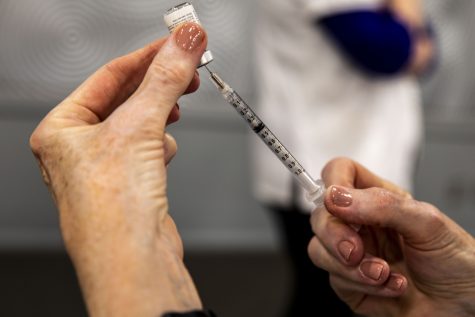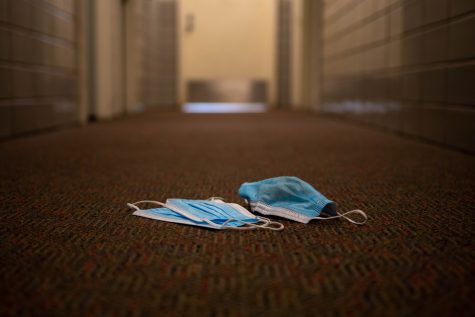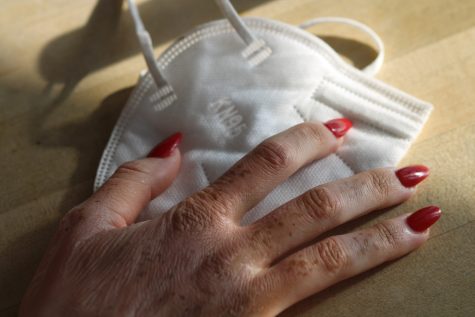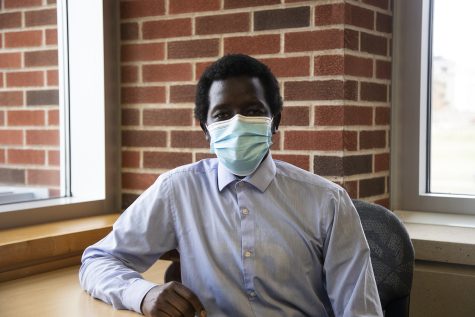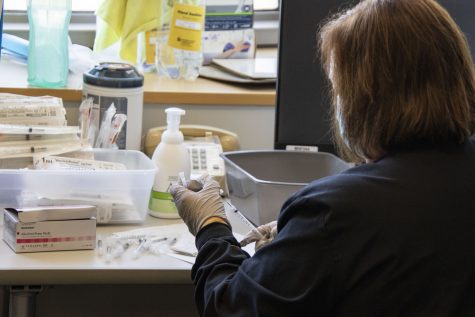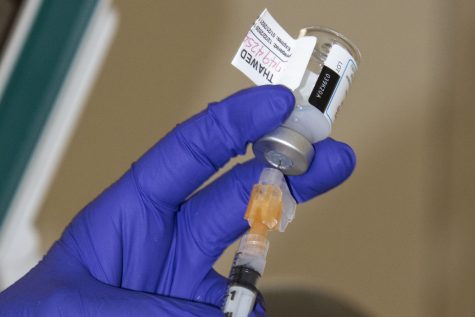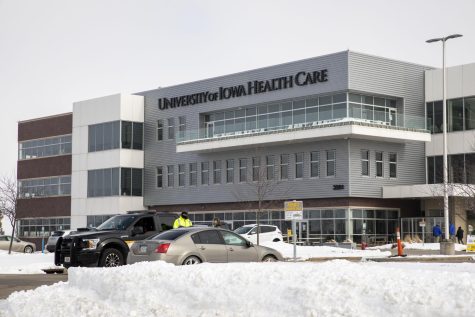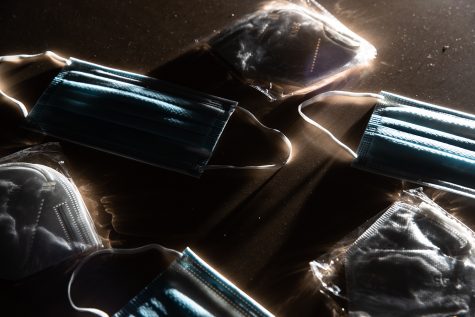23 new COVID-19 cases confirmed in Iowa, 5 in Johnson County
The new cases reported signal the largest single-day spike of cases yet in Iowa as testing ramps up.
The Johnson County Health and Human Services building at 855 South Dubuque Street.
March 21, 2020
An additional 23 cases of COVID-19 have been confirmed in Iowa, state officials reported in a release Saturday, bringing the statewide total to 68 positive cases — the largest single-day spike in cases Iowa’s seen since the virus was first reported in the state as testing ramps up.
According to the release from Gov. Kim Reynolds, the Iowa Department of Public Health strongly recommends that Iowans who have traveled out-of-state, domestically or internationally, self-isolate for 14 days after their return to Iowa.
“This will support Iowa’s ongoing efforts to mitigate the spread of COVID-19, and limit the introduction of the virus from other points of travel,” the release stated.
Reynolds on March 20 reported 45 positive cases of the virus and said the State Hygienic Laboratory in Iowa City tested 765 negative cases. Now, that total has spiked and the lab has tested 1,049 negative cases.
Five of the 23 new cases are in Johnson County, bringing the total count to 27, the highest of any county in Iowa.
Of the five new cases, three are adults between ages 18 and 40, one is between ages 41 and 60, and one is between ages 61 and 80.
The other cases were reported in Allamakee, Black Hawk, Dubuque, Fayette, Henry, Linn, Muscatine, Polk, Pottawattamie, Story, and Washington Counties in those ranging between ages 18 and 40 and those age 81 or older.
According to Johnson County Public Health, as of March 20, six of the individuals with confirmed cases of COVID-19 in Johnson County have recovered and are no longer considered infectious.
Reynolds announced March 16 that the State Hygienic Laboratory, which conducts the bulk of testing for the virus in Iowa, added a second shift to test more individuals quickly and double daily capacity to 108 tests per day, Reynolds said. She added that health officials are prepared to add a third shift if the situation warrants.
She also said national labs are conducting tests from Iowa now, and positive test results would be included online. Reynolds said the state was placing orders for respirators and other health equipment to private vendors and at the Strategic National Stockpile.
Mercy Hospital has added its own temporary COVID-19 testing unit connecting a tent to the outside of the emergency room to separate those who may have COVID-19 from patients in the rest of the hospital.
The Iowa Department of Public Health on March 19 updated guidelines for testing. Individuals may consult with health-care providers about getting tested if they fall into these categories:
- Hospitalized with fever and respiratory failure with no other diagnosis (such as influenza)
- Those age 60 and older with fever and respiratory symptoms (cough, difficulty breathing) and chronic medical conditions (diabetes, heart disease, immunosuppressive meds, COPD, asthma, or kidney disease)
- Fever or respiratory illness who live in a congregate setting (long-term care facilities, residence halls, residential facilities, correctional facilities, treatment facilities)
- Health-care providers, first responders, residential facility staff workers and other essential services personnel with fever and respiratory illness
Reynolds in a series of videos Wednesday said Iowans who believe they might have the coronavirus should stay home and rest, rather than immediately going to the clinics to be tested. State Medical Director Caitlin Pedati also said in the videos that not everyone will need to be tested — around 80 percent of those infected will have mild symptoms, and can recover by staying home, she said.
But the U.S. has come under scrutiny for lagging in testing as the number of positive COVID-19 cases continues to increase. The New York Times reported March 17 that recent data show “about 125 people per million have been tested in the United States — far fewer than most other countries where data is available.” Without fully testing, critics of the government’s slow response to boost testing and respond to the spread of the novel coronavirus say it’s unknown how many COVID-19 cases there actually are.
The UI earlier this week provided the following advice for those who believe they may have been exposed to the virus or are experiencing symptoms:
DO NOT walk in to QuickCare, Student Health, any UI Health Care clinic, the State Hygienic Lab or any emergency room. Instead, follow these procedures:
- Students: Call or email the Student Health Nurseline (319-335-9704) ([email protected]) or your local health care provider and inform them of your travel history and symptoms. After hours and on weekends, call the UI Hospitals & Clinics at 319-384-9010 or the 24-hour helpline, 319-384-8819, or your local health care provider. You may also schedule a video visit through MyChart.
- Faculty and Staff: Call your health-care provider or the UI Hospitals & Clinics (319-384-9010) and inform them of your travel history and symptoms, or schedule a video visit through MyChart.
It is important to know that your privacy will be maintained by your provider.
Social distancing is how the community can stop the virus from spreading. Remain out of congregate settings, avoid mass gatherings, and maintain safe distance (approximately 6 feet or 2 meters) from others when possible.






